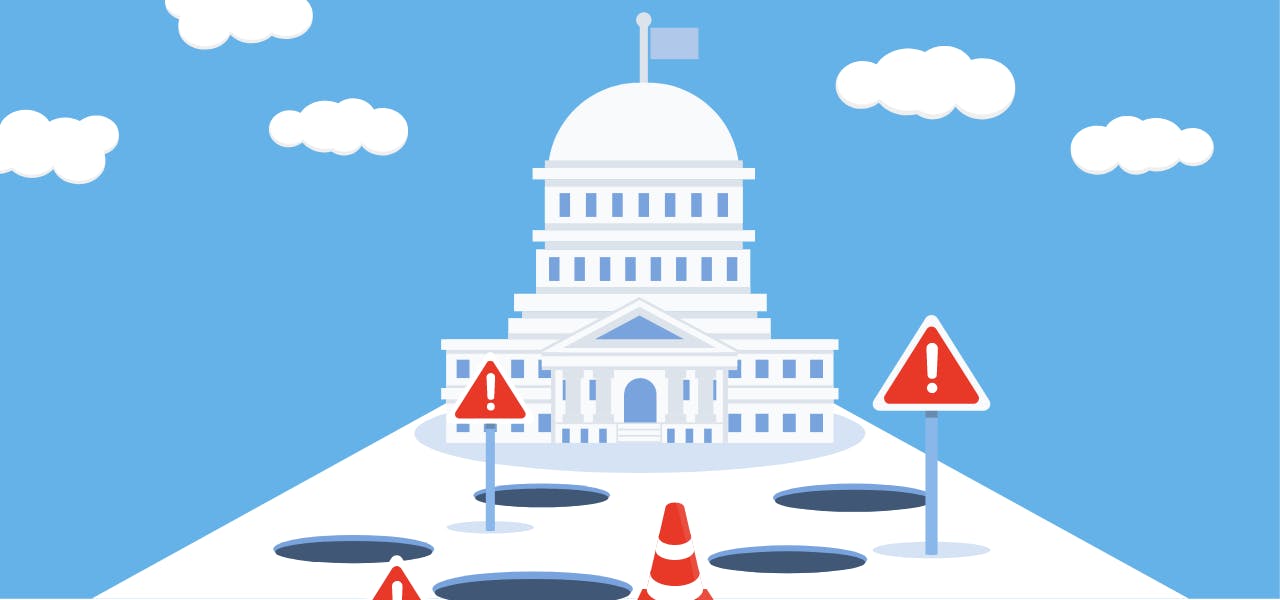Traditional methods of independent research have been disappearing as studies show the powerful benefits behind the collaboration. From collaborative teams in the same university to inter-institutional and government teamwork, what was once deemed best for private, independent eyes only is now a way for multiple entities to work together for the collective good.
When an institutional team collaborates with government entities, however, there are different rules and regulations that have to be followed. It can be confusing for the researchers to know whether to adhere to their original institutional standards and expectations or adjust to those of the government policies. This confusion leads to pitfalls, but when the scholar knows about them in advance, it’s easier to avoid these problems before they happen and enjoy the perks of government collaboration instead.
Benefits of Collaboration
Independently backed and government studies have consistently shown a positive correlation between increased productivity and cross-discipline and institutional researcher collaboration. The impact is evident that when multiple researchers successfully work together through local or long-distance collaborative methods, the results are always more powerful than when a researcher compiles the same type of work on their own.
Part of the advantage is considered to be because researchers might not have access otherwise to things like highly established libraries and their resources, labs with research equipment, and academic experts in a field that comes in handy during the research itself.
This is particularly true with government labs that have higher clearance to access technology institutions might not be able to otherwise.
When multiple scholars work together towards the same goal, it allows people with different perspectives, coming from different backgrounds, cultures, and demographics, to all, have a say in the experiment with their various collective knowledge. Combining all of these views together helps create a big picture in which little aspects that might have otherwise been overlooked become visible.
Why Government Entities and Institutions Work Together
It’s not always easy for a researcher to get the funds to back their work, and when the stakes are high enough to be noticed by the government, they may offer an agency or their funding organization to aid in financing the project as long as their staff is able to collaborate and oversee the research.
This government collaboration gives researchers the resources and information that they need to thoroughly execute their experiments. Government backing can open doors that private institutions might not have been able to get to. At the same time, government officials are able to obtain information from the research to help drive policies and make informed decisions on the state and federal levels.
Those same benefits, though, can quickly deteriorate into problems if both sides are not willing to work together and compromise when the need arises.
Pitfalls to Be Aware of in Your Collaboration
Anytime multiple people are working together, there are bound to be personality or philosophy clashes. When those groups include strong university researchers and government entities, it’s even more likely that both sides will have difficulty making the partnership run well.
The goal of research for both sides is supposed to be to keep everything neutral and ensure that all human rights are respected, at all times. But when the way to do this is called into question, problems arise.
To keep these two goals always at the forefront as a researcher, follow these tips:
● Follow your research objectivity at all times while still attempting to make the collaboration work for everyone. Remember that you are the expert but they still have the knowledge, funding, and the right to respect.
● Take control of and follow the lines for all consent practices. Ultimately, any breach of privacy or failure to obtain the correct consent will fall to your lap.
● Take steps to guard your publishing rights, watching for any nondisclosure agreements and other fine print in contracts that takes away your rights, even if you have to hire an attorney to review everything.
● Be careful who you choose to work with. Sometimes, you may be able to find a better partnership if you keep looking. But once you choose them and sign contracts to work together, do your best to make it work well.
Collaborating with government entities has a bad reputation ahead of time. Don’t let that stereotype bias you before you even start the project.
Everyone Can Agree on Impactio
Regardless of the differences between researchers and government entities, it’s easy to agree that all the research presented must be neutral and professional. That’s where Impactio comes in.
With Impactio, the person compiling the research can do everything from start to finish, preparing their work for analysis and dissection from any branches of government involved in the final say.
Connect with your research team at any time, create your own professional academic profile, and use the global community of your Impactio peers to collaborate at any level.
